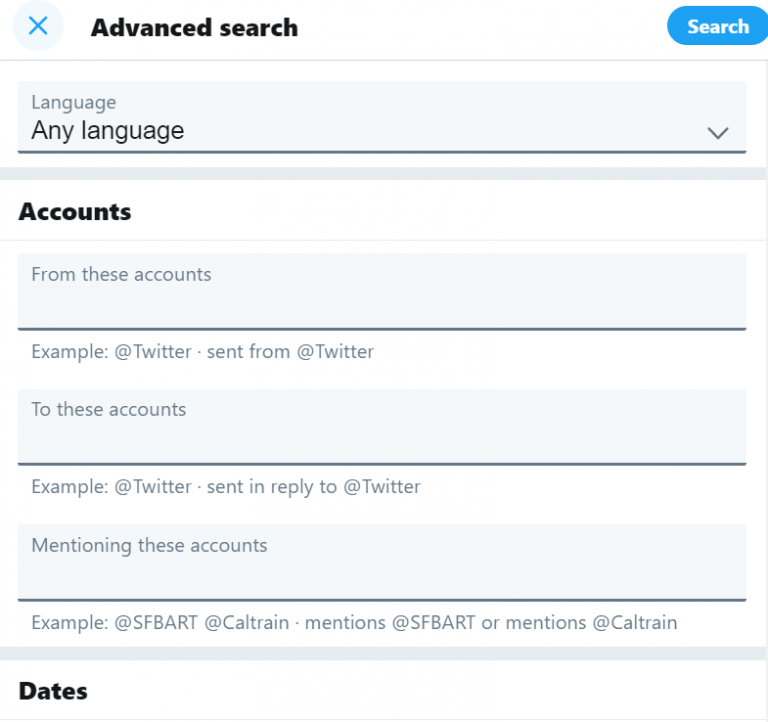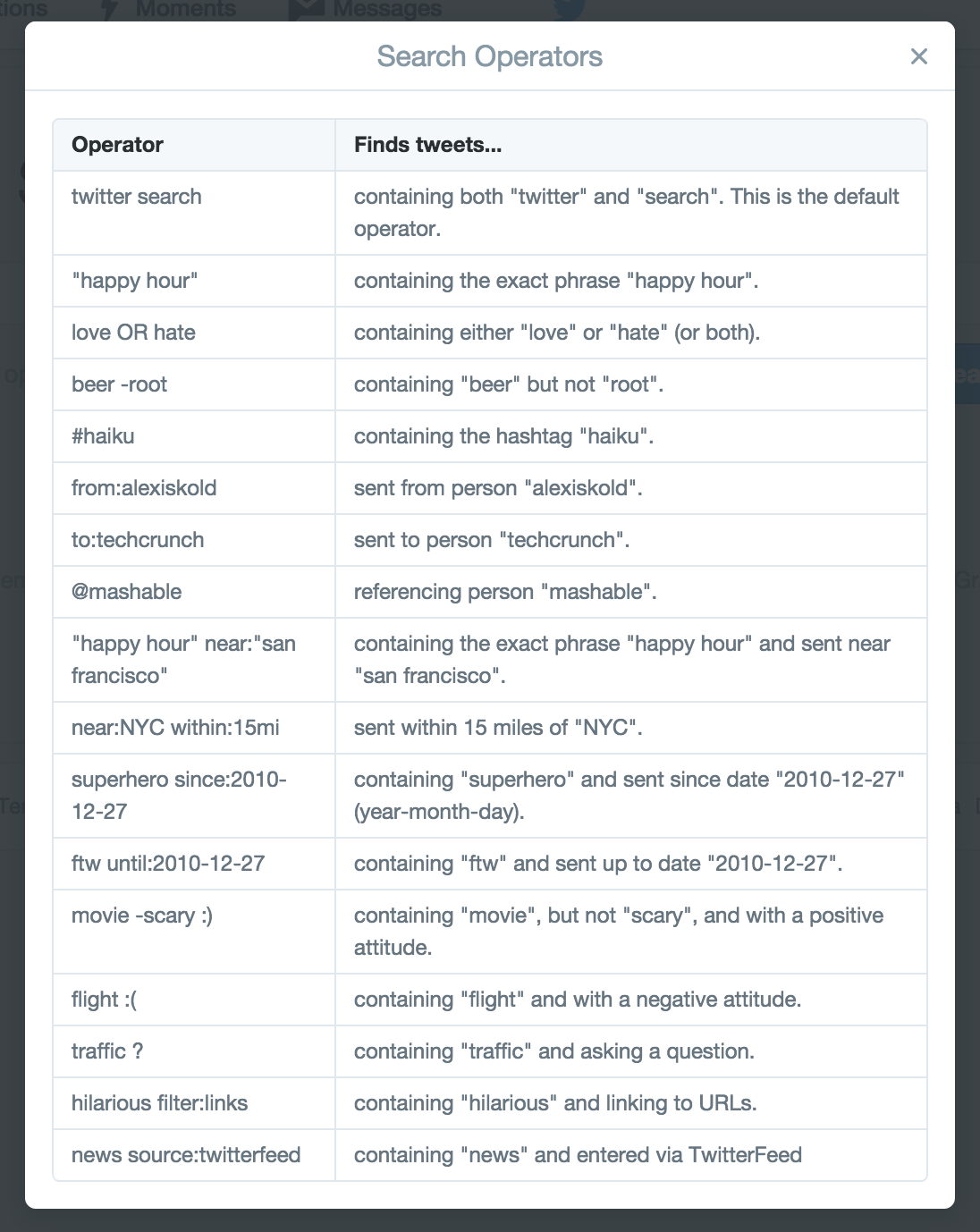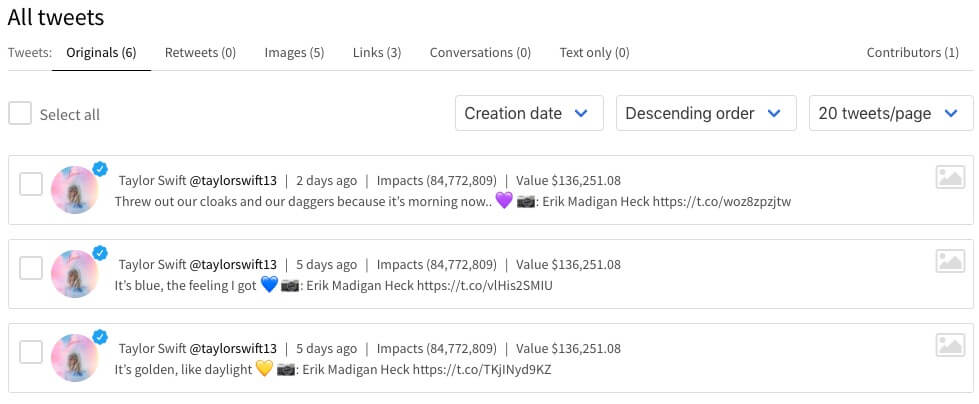Twitter is one of the most dynamic social media platforms and it’s miles used by several marketers and brands to reachability customers. It is a powerful network that you can leverage to your advantage, but only if you know-how.
Twitter’s advanced search is one feature that offers numerous business advantages if you know what you can do with it. From generating leads to spying on your competitors, you can do a lot simply by using Twitter’s advanced search feature.
In this post, we will discuss the various search options that you can find in Twitter’s advanced search interface and what they mean We will also tell you a quicker manner to behavior these searches by the usage of search operators. Then, we will end with the real-existence use cases of using search for your business.
How to Use Twitter Advanced Search:
Understanding Twitter Advanced Search Functions
The advanced search on Twitter has several functions that assist you to finetune your searches to make them greater precise. This consists of filters for keywords, dates, locations, languages, and Twitter users.

Using a combination of 1 or greater of these search functions or filters, you could make very unique searches.
Here are the screenshots of all the available options that you can choose from. Next, we will talk about all of these search features in more detail.
Words
Twitter provides numerous options for attempting to find a key-word or a combination of keywords and even excluding certain words.
All of these words
Twitter advanced search will look for all the words that you enter in this field, in no particular order. This means that if you search for the term, “digital marketing,” it will show results for tweets containing both these words. However, these do not necessarily need to be in the same order and can be separately placed.
This exact phrase
Unlike the previous search function, this one places emphasis on the order of placement of words as well. This means that is your search for the term digital marketing, it will handiest display results wherein these two phrases are located next to every different in the same order. This is a good search option if you want to search for specific phrases as a substitute for single words.
Any of these words
If you use this option and search for the term digital marketing then Twitter will search for results containing either “digital” or “marketing.” This is useful when you want to search for tweets containing a particular word or its synonyms or different variations of the same word.
None of these words
This is the option to use if you need to exclude sure words from your search results. This is generally used in combination with one or greater of the above key-word searches. It is especially useful when a keyword ought to have two meanings and you want to exclude a certain type of results.
Hashtags
This is a simple search but instead of words, you can search for hashtags. Using this will help you find all tweets that contain a particular hashtag.
Language
Using this search filter you could choose the languages in which you want to look at your search results.
Accounts
Twitter provides search options to search for tweets from a particular account or set of accounts. You can also search for mentions of particular Twitter accounts.

There are three different search functions that you can use for accounts:
From these accounts
You can use this search option while you want to discover tweets from a particular account or set of accounts. If you want to locate tweets from an account on a specific topic, then you can use it in combination with a key-word search.
One use case for this type of search is to use it to keep tabs on your competitors.
To these accounts
As we all know, Twitter also has the option where a user can reply to a tweet from another user. Using this search function you can find all the tweets sent to a particular account.
Mentioning these accounts
This is useful for social media listening, which is something that a lot of marketers do. It also helps with conducting a sentiment analysis before and after a campaign, to see if your brand mentions have increased.
Dates
This is a useful function that lets you filter your search effects and handiest see those for a selected time period. This can be used in mixture with any of the alternative search filters referred to here.
You can use this in 3 ways. First, to see the search results after a particular date, second to peer those earlier than a sure date, and third to see results within a time duration.
Location
This is not sincerely an advanced search filter, but it was essential to say as it may be used with other search combos to refine your searches. You can use this to filter your search results for a selected location.
Twitter Advanced Search Operators
Twitter’s advanced search provides an easy way to refine your searches and find exactly what you were looking for. However, it is not very convenient to open the advanced search tab and fill in your search queries. And, to create a single search query, you need to fill different boxes and that takes time.

If you want a quicker way to create and execute advanced search queries, then you can use search operators. You can use these operators to directly create search queries from the search bar on Twitter.
Exact phrase – double quotes
If you want to find results containing an exact phrase you can put that phrase in double-quotes. For example “digital marketing” will give you an exact phrase result without having to go to the advanced search interface.
Any of these words – OR
If you want results containing any of a list of words, but not all, then you can use the operator “OR” between those words. For example, if you want to find tweets that mention either the word A or the word B, then your search query will be – “A OR B.”
Excluding a word – Minus sign
If you want to exclude a certain word from your search query, simply add a minus (-) sign before that. For example, if your main keyword is pets, but you want to exclude dogs from the results your search query would be “pets -dogs.”
From an account – From:
If you want to find tweets sent by a particular Twitter account simply write “From” followed by a colon and then the account name. Example – “From: twitter.”
To an Account – To:
To find all of the tweets sent in reply to an account simply write the word “To” followed by a colon and then the account name. Example – “To: twitter.”
Examples of Some Types of Advanced Searches
Now that you know how to behavior an advanced search on Twitter, let’s look at some of its use cases. There are lots of extraordinary ways in which advanced searches can help you. The greater combos of search capabilities that you try, the more various the effects you’ll get.
Here are only some examples to present you with the experience of real-life makes use of Twitter advanced search.
Sentiment Analysis
One practical way in which you can and should use Twitter advanced search is to conduct a sentiment analysis for your brand.
This is particularly useful when you have recently launched some marketing initiatives that specialize in Twitter. By analyzing a boom or decrease in your logo mentions, you may discover whether or not your marketing campaign was a success or not.
To do this, simply search for brand mentions during the period when your Twitter marketing initiatives were executed. Analyze the results to see what people were saying about your brand or campaign.
Lead Generation
Another real-life, practical use of Twitter advanced search is to generate leads. Simply run a brand mention search for your competitors, along with the negative sentiment search. Using this, you will find people who are dissatisfied with your competitors and can easily be targeted.
You can send an offer to these people along with a reason why they should switch to your brand.
Most-Popular Tweet Finder
We all know that you can find all the tweets from a particular user within a specific time period. What some of you might not know is that you can also sort out the results by popularity.

This means that you can find the most popular tweets from your competitors and use that to refine your Twitter content strategy.
After all, knowing what worked for others can help you figure out what to do yourself to get more engagement on your tweets.
Final Thoughts
Twitter’s advanced search is a brilliant feature that you can leverage to gain a competitive advantage. And, understanding the various search functions and operators is really easy, even though it might seem complicated at first glance.
Use this post as your ultimate guide for using Twitter’s advanced search feature to its full potential.
So, what are you waiting for? Start using it now.















